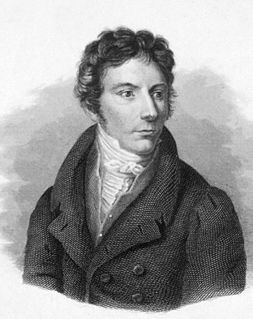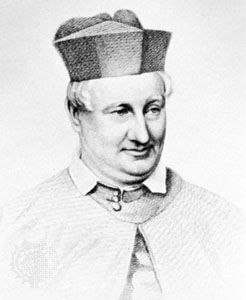A Quote by Heinrich Heine
Our souls must become expanded by the contemplation of Nature's grandeur, before we can fully comprehend the greatness of man.
Quote Topics
Related Quotes
Art itself is essentially ethical; because every true work of art must have a beauty or grandeur of some kind, and beauty and grandeur cannot be comprehended by the beholder except through the moral sentiment. The eye is only a witness; it is not a judge. The mind judges what the eye reports to it; therefore, whatever elevates the moral sentiment to the contemplation of beauty and grandeur is in itself ethical.
Wherefore, as I have said to you, I, God, have become man, and man has become God by the union of My Divine Nature with your human nature. This greatness is given in general to all rational creatures, but, among these I have especially chosen My ministers for the sake of your salvation, so that, through them, the Blood of the humble and immaculate Lamb, My only-begotten Son, may be administered to you.
The pursuit of happiness is a great activity. One must be open and alive. It is the greatest feat man has to accomplish, and spirits must flow. There must be courage. There are no easy ruts to get into which lead to happiness. A man must become interesting to himself and must become actually expressive before he can be happy.
Before examining this more carefully and investigating its consequences, I want to dwell for a moment in the contemplation of God, to ponder His attributes in me, to see, admire, and adore the beauty of His boundless light, insofar as my clouded insight allows. Believing that the supreme happiness of the other life consists wholly of the contemplation of divine greatness, I now find that through less perfect contemplation of the same sort I can gain the greatest joy available in this life.
That is what we must do when we fully know the purposefulness of life - live it gloriously by living it ecstatically. We can live it ecstatically only as we know the ecstatic nature of God and become like Him through being continually inspired by communion with Him. To become like Him, we must become aware of our identity with Him. We must know Him as Creator of all that is, and in so doing know ourselves as creator of all that is.
Among the older records, we find chapter after chapter of which we can read the characters, and make out their meaning: and as we approach the period of man's creation, our book becomes more clear, and nature seems to speak to us in language so like our own, that we easily comprehend it. But just as we begin to enter on the history of physical changes going on before our eyes, and in which we ourselves bear a part, our chronicle seems to fail us-a leaf has been torn out from nature's record, and the succession of events is almost hidden from our eyes.
We must, with God's help, eradicate the deadly poison of the demon of anger from the depths of our souls. So long as he dwells in our hearts and blinds the eyes of the heart with his somber disorders, we can neither discriminate what is for our good, nor achieve spiritual knowledge, nor fulfill our good intentions, nor participate in true life; and our intellect will remain impervious to the contemplation of the true, divine light; for it is written, 'Man's anger does not bring about the righteousness of God' (Jms. 1:20).
The Blessed Sacrament is the magnet of souls. There is a mutual attraction between Jesus and the souls of men. Mary drew Him down from heaven. Our nature attracted Him rather than the nature of angels. Our misery caused Him to stoop to our lowness. Even our sins had a sort of attraction for the abundance of His mercy and the predilection of His grace. Our repentance wins Him to us. Our love makes earth a paradise to Him; and our souls lure Him as gold lures the miser, with irresistible fascination
This must be our belief when we have a correct knowledge of our own self, and comprehend the true nature of everything; we must be content, and not trouble our mind with seeking a certain final cause for things that have none, or have no other final cause but their own existence, which depends on the Will of God, or, if you prefer, on the Divine Wisdom.






































